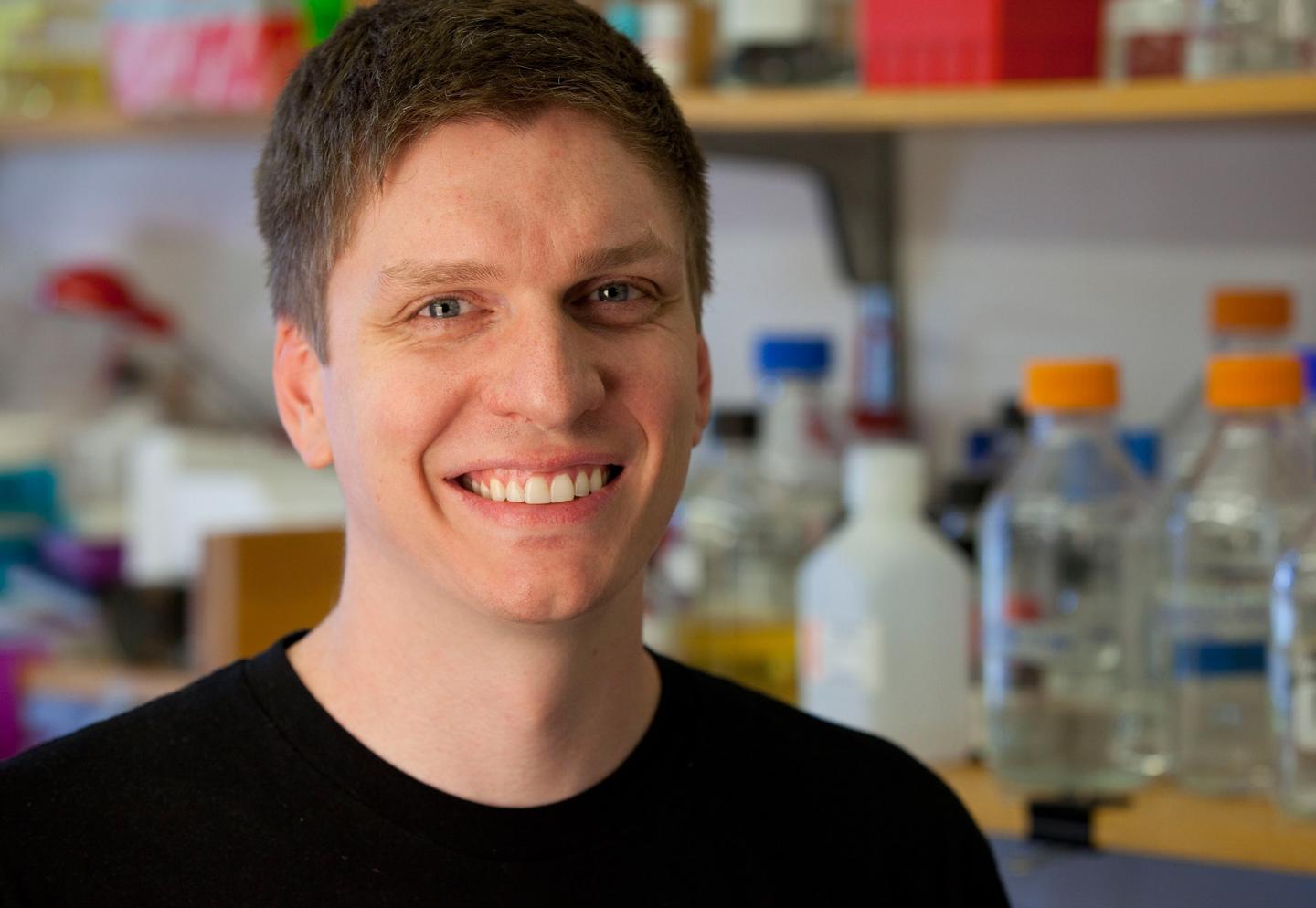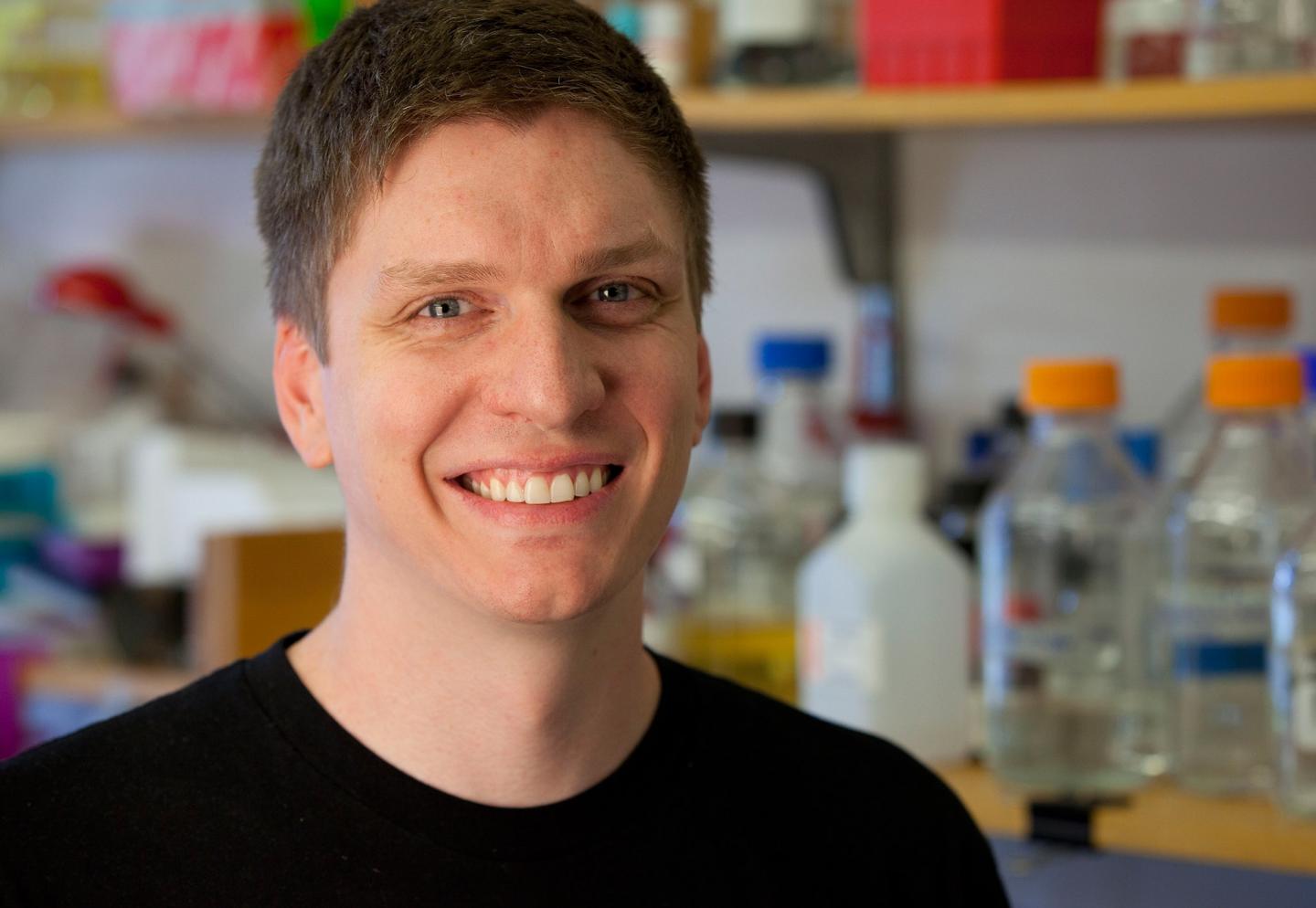
Credit: Zach Donnell
BLOOMINGTON, Ind. — A new study from molecular biologists at Indiana University has identified cellular processes that appear to supercharge both the growth and shrinkage of the chemical "caps" on chromosomes associated with aging, called telomeres.
The work, focused on two enzymes in yeast, could lead to new insights on stopping runaway cellular growth in cancer tumors, as well as the treatment of premature aging disorders such as progeria (aka "Benjamin Button disease"). The research is reported in the Journal of Biological Chemistry.
"This work confirms that two specific enzymes — called helicases — are involved in telomere maintenance, and demonstrates they're even stronger in combination," said Matthew Bochman, an associate professor in the IU Bloomington College of Arts and Sciences' Department of Molecular and Cellular Biochemistry, who is senior author on the study. "This is significant since dysfunction in telomere maintenance has been found in 100 percent of cancers. Literally, 100 percent. So, it's very likely they play a role in the disease."
Helicases are enzymes that unwind double-stranded DNA into a single stand for the purposes of replication, recombination and repair. In humans, the RecQ4 helicase functions similarly to the Hrq1 helicase in yeast. The Pif1 helicase is the same in both species.
In healthy people, telomeres shorten slowly over the lifespan as part of the natural aging process. In cancer cells, the brakes come off this process, so telomeres never grow shorter — resulting in uncontrolled cellular replication. In people with premature aging disorders, telomeres rapidly shrink, resulting in death from "old age" in the late teenage years.
Mutations of the Pif1 helicase have been linked to several types of cancer, including common forms such as breast, ovarian and colon cancer. Mutations in the RecQ4 helicase have been linked to three different diseases associated with predispositions for cancer.
The study specifically found that Hrq1 and Pif1 are a "dynamic duo" that combine to create a "super inhibitor" or, under certain specific conditions, a "super stimulator" of telomere growth.
"Now, we can now really start to pick apart more about how these enzymes work together or alone in cancer cells," Bochman said.
The work may help scientists better understand whether certain cancers involve errors in DNA recombination, DNA repair or telomere maintenance — or some other mechanistic problem. This, in turn, could lead to new ways to disrupt or harness these processes with drugs or other therapies.
###
Additional IU researchers on the study were first author David Nickens, a research assistant in Bochman's lab, and Cody Rogers, an IU Ph.D. student. The study was supported in part by the American Cancer Society.
Media Contact
Kevin Fryling
[email protected]
812-856-2988
@IUScienceNews
http://newsinfo.iu.edu
Original Source
https://news.iu.edu/stories/2018/09/iub/releases/25-study-finds-enzymes-partner-up-to-accelerate-cancer.html http://dx.doi.org/10.1074/jbc.RA118.004092





